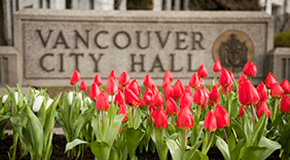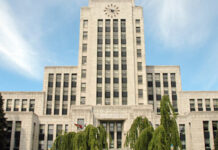THE City of Vancouver will be proposing the consolidation of a $2 billion dollar Vancouver Affordable Housing Endowment Fund to Council next week, intended to transform how non-market and affordable housing is delivered across Vancouver.
The Fund would amalgamate over 200 City-owned and operated assets, in addition to potential revenue from housing related sources such as Community Amenity Contributions, the Empty Homes Tax and Capital Plan, to support the growth and preservation of the City’s affordable housing portfolio.
It will also significantly enhance the City’s ability to deliver on Housing Vancouver targets, acquire new housing sites, increase support for social and non-profit housing, and better align with housing partners and senior levels of government.
Six months after the launch of the ambitious Housing Vancouver strategy, the City says it is on track to deliver 72,000 new homes over the next ten years, with more work needed to continue the shift towards the right supply.
With an emphasis on creating more of the right kind of homes for residents, the City approved over 7,100 units in 2017, including:
· 1702 social and supportive homes
· 822 purpose-built rental units
· 591 laneway rental homes
· 3827 condominiums
· 189 townhouses
Additional highlights from the past six months include:
· Approval of Cambie Corridor Phase 3, which will deliver 32,000 homes to be built, including 5,400 rental homes and 2,800 units of social housing. It will enable 4,200 homes over the next ten years, comprised of rental housing, townhomes and condominiums. 1,000 of these units will be slated for below-market rental or social housing.
· Expanded protection against the loss of rental units through an updated Rental Housing Stock Official Development Plan, which protects approximately 53,000 units of market rental housing in multi-family areas across the city.
· The Moderate Income Rental Housing Pilot Program, which is supporting the development of rental units for individuals and families earning between $30,000 and $80,000 annually. The City is currently reviewing 20 proposals for new rental projects that are anticipated to deliver up to 3,000 rental homes, 25% of which would be targeted to households with moderate incomes.
· The Empty Homes Tax, the first of its kind in North America, will generate an estimated $30 million in revenue. The City has collected $18 million to date, and after first-year project and operating costs are deducted there is currently $8 million available to allocate to affordable housing initiatives.
· Over 1,100 short-term rental business licences have been issued, with 400 short-term listings either converted to long-term rental units or delisted in the first six weeks of the City’s short-term rental regulations being enacted.
· Opening more than 280 permanent social and supportive housing units in 2018, with nearly 620 more units expected to open this year.
· As part of a $66 million commitment by the BC government to build 600 units of temporary modular housing in Vancouver, over 500 temporary modular homes on eight sites are at various stages of development. 156 homes are already occupied.
In order to track the progress of Housing Vancouver over the next 10 years, City staff have developed the first Housing Vancouver Annual Progress Report and Data Book. The progress report establishes benchmarks to measure how the city is performing on key housing affordability outcome measures, and provides a summary of implementation actions already underway. The accompanying Data Book provides a comprehensive resource on indicators on housing demand, supply, and affordability in Vancouver. The annual Progress Report and Data Book will be presented to City Council each spring.
City staff will also be recommending a new housing program called Making Room to Council, to increase housing choice in neighbourhoods across Vancouver. Making Room will take a city-wide approach to adding more housing options for residents, such as duplexes, townhomes and low-rise apartments. The first actions to deliver more ground-oriented housing in neighbourhoods is the proposed introduction of duplex zoning in formerly Single Family zoning districts (RS districts), as well as proposed changes to the Laneway House Program, which will streamline zoning regulations to make it easier and faster for property owners to build laneway homes.












